Nathan MacDonald
Priestly Rule
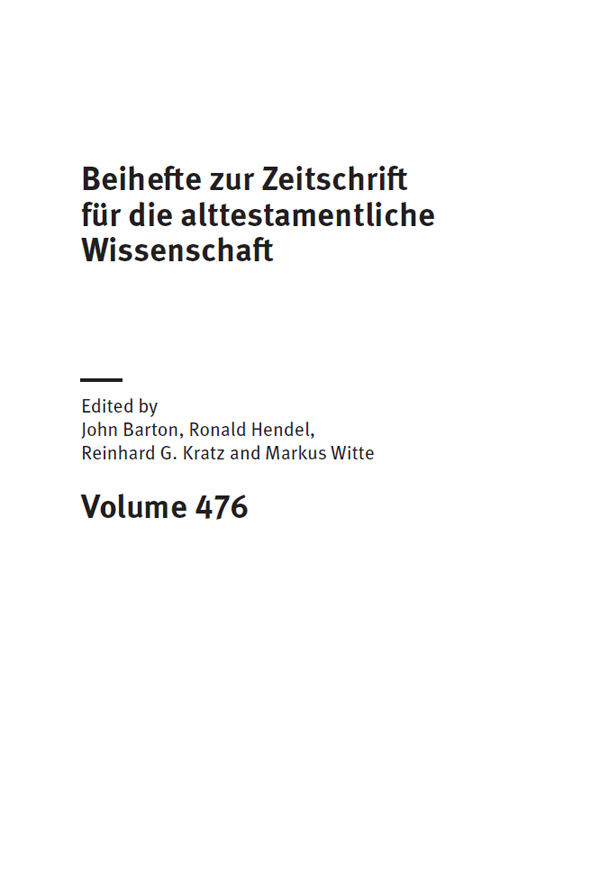

ISBN 978-3-11-041003-7
e-ISBN (PDF) 978-3-11-041186-7
e-ISBN (EPUB) 978-3-11-041201-7
ISSN 0934-2575
Library of Congress Cataloging-in-Publication Data
A CIP catalog record for this book has been applied for at the Library of Congress.
Bibliographic information published by the Deutsche Nationalbibliothek
The Deutsche Nationalbibliothek lists this publication in the Deutsche Nationalbibliografie; detailed bibliographic data are available on the Internet at http://dnb.dnb.de .
2015 Walter de Gruyter GmbH, Berlin/Boston
www.degruyter.com
Contents
Preface
The following book is an extended technical essay devoted to the interpretation of Ezekiel 44. It began a number of years ago as a brief examination of the relationship between that chapter and Numbers 18, but it soon became apparent that the challenges of Ezekiel 44 required more attention than I had initially anticipated. Since the chapter has played such an important role in scholarly reconstructions of the history of Israel's priesthood, I hope the reader will indulge my granting it an extended and detailed analysis. I have tried as far as possible to avoid superfluous discussion or merely repeating arguments already made by others.
The book has benefited from an extended gestation, which is to say I have profited from the wisdom of many others. Earlier versions of the argument were presented at the Georg-August-Universitt Gttingen, the Humboldt Universitt zu Berlin, Universitt Zrich, the University of St Andrews, and at the annual Society of Biblical Literature meetings in San Francisco and San Diego. I am grateful to those who probed my interpretation and offered various criticisms. At the risk of forgetting someone who made an important contribution to my thinking, I am grateful especially to Peter Altmann, Stephen Cook, Anselm Hagedorn, Anja Klein, Reinhard Kratz, Thomas Krger, Noam Mizrahi, Thilo Rudnig, Harald Samuel, Konrad Schmid, Jean-Louis Ska, and Hermann Spieckermann. My research team in Gttingen provided detailed criticisms from the time that I began to work on this topic, notably Robert Barrett, Ken Brown, Izaak de Hulster, Lydia Lee, and Roberto Piani. Their challenges at the earliest stage of my research had a decisive effect on the structure of the argument. In returning to the UK, and Cambridge in particular, I have enjoyed the advice of Jim Aitken, Charlotte Hempel and Bill Tooman. Any deficiencies that remain are attributable to me alone.
I am grateful to the Alexander von Humboldt Stiftung and the Bundesministerium fr Bildung und Forschung who financially supported the research of the Sofja-Kovalevskaja Research Project, Early Jewish Monotheisms at the Georg-August-Universitt Gttingen where this book was originally conceived. I am also grateful to the editors of Beihefte zur Zeitschrift fr die Alttestamentliche Wissenschaft for accepting this volume into their series.
Claire as always deserves more thanks than anyone else. She has encouraged me onwards and insisted on regular updates and a definitive timetable. Callum, Eilidh and Morven have generously allowed me to work on Daddy's book despite there having been interesting films to watch, important games to play and exciting books to read. Finally, the book is dedicated to my own father, who has waited patiently for his book:  (Sir 3:2).
(Sir 3:2).
Introduction: Post-Exilic Polemic over the Priesthood
The small group of Jews that returned from Babylon encountered a different reality to the one their ancestors had known. There was no king and the temple of YHWH in Jerusalem was destroyed. Towns and cities were ruined, properties had been occupied by those who had remained in the land, and economic activity was on a much lower level as a result of the depopulation of the country. Those who returned sought to establish a community orientated around the family and the rebuilt temple. Judean descent ensured membership of the community, and bearing children safeguarded its survival. These norms emphasized the continuity of the community and secured both the past and the future. In this way the returnees sought to create a new reality that would erase the rupture of exile.
However effective this was as a survival strategy, it marginalized a significant part of the population of Persian Yehud. Those who had never been in Babylonia and had lived in the Judean hillsides their entire lives found themselves outsiders in their own country. The returning group enjoyed the patronage of the Persian overlords and could mould the community norms to a considerable degree. Inevitably perhaps these different visions of the community and its membership collided over the newly rebuilt temple and who could participate in its cultic worship.
Evidence for this communal struggle surface in the biblical text as is apparent if we read the opening oracle of Trito-Isaiah together with Ezekiel's temple vision. Isaiah 56 addresses those who regard themselves as cut off from the community: the son of a foreigner and the eunuch. For both of them issues of lineage left them without a place in a society where the family gave meaning and location. The son of a foreigner could not claim pure Judean ancestry; the eunuch could not father the next generation. In Trito-Isaiahs oracle both groups are granted an honoured place within the community.
For thus says the LORD:
To the eunuchs who keep my Sabbaths, who choose the things that please me and hold fast my covenant, I will give, in my house and within my walls, a monument and a name better than sons and daughters; I will give them an everlasting name that shall not be cut off.
And the foreigners who join themselves to the LORD, to minister to him, to love the name of the LORD, and to be his servants, all who keep the Sabbath, and do not profane it, and hold fast my covenant these I will bring to my holy mountain, and make them joyful in my house of prayer; their burnt offerings and their sacrifices will be accepted on my altar; for my house shall be called a house of prayer for all peoples (Isa 56:47; NRSV)
The prophet envisages the eunuchs having a memorial in the temple and the son of a foreigner will bring sacrifices and minister in the temple, with perhaps even priestly service in view.
Next page
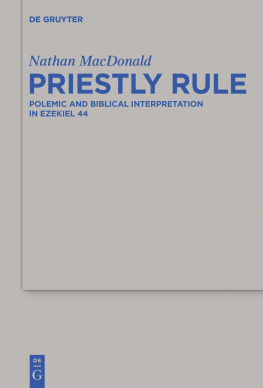
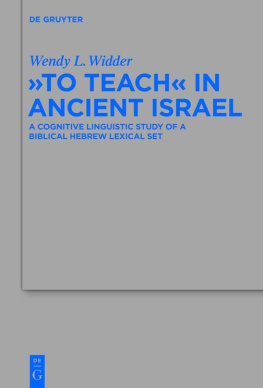
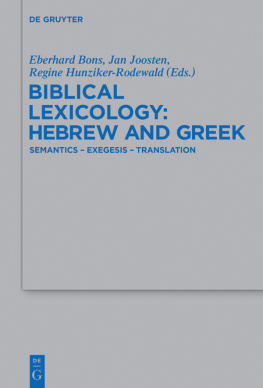
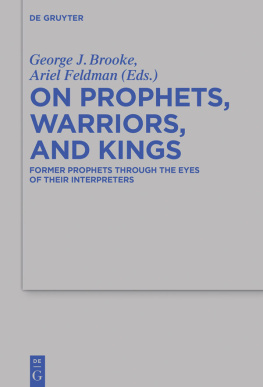
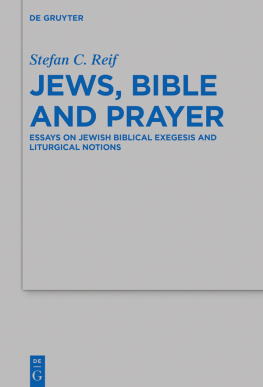

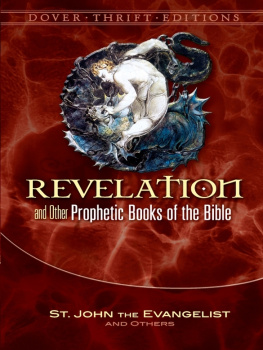
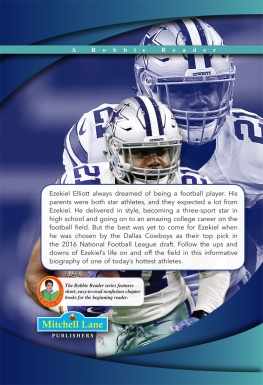
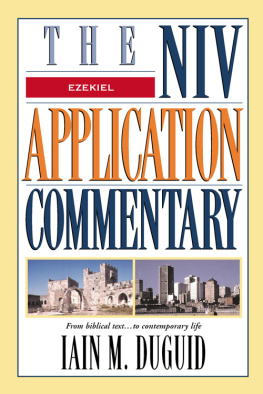



 (Sir 3:2).
(Sir 3:2).